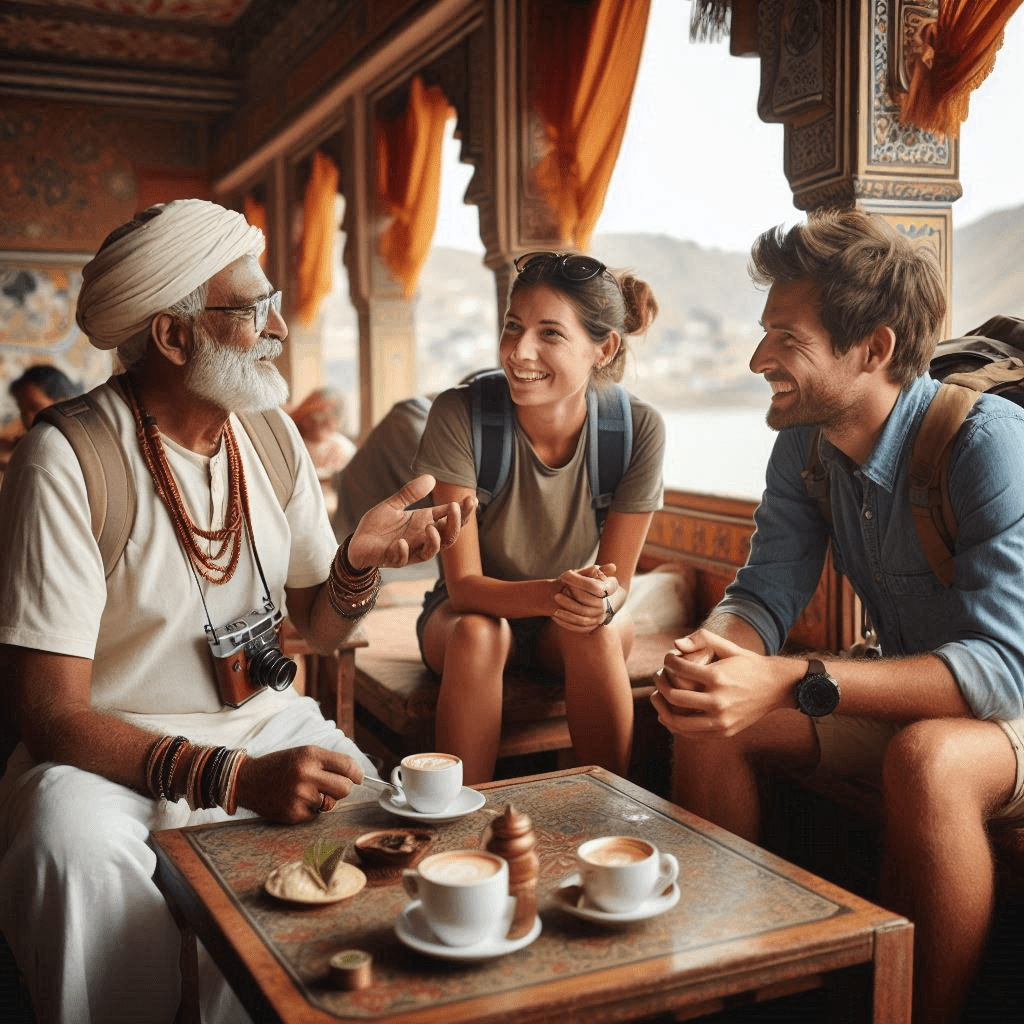India is a dynamic country with a lively political scene that reflects its diverse culture and history. As a traveler, you might find yourself in conversations about politics, whether with a rickshaw driver, a market vendor, or a fellow tourist. These discussions can be fascinating but require sensitivity due to India’s complex social and political landscape. Here’s a practical guide to help you engage respectfully, gain insights, and enrich your travel experience.
Before You Engage
Understand the Context
India’s democracy is one of the largest in the world, with passionate debates shaped by its diversity. Political polarization often stems from religious, caste, and linguistic differences. As in many other countries, media in India including television, newspapers and social platforms often amplify these divides with biased or paid narratives or misinformation to suit vested interests across the political spectrum. Be prepared for strong and often biased opinions, and approach conversations with an open mind.
Read the Room
Before joining a discussion, gauge the mood. Is it a casual chat over chai at a roadside stall, or a heated debate in a city café? If emotions are running high, it’s often best to listen rather than contribute.
Know Your Audience
The person you’re talking to matters. A taxi driver might share local insights, while a shopkeeper may focus on economic policies affecting their business. Fellow travelers might offer a broader perspective but less local context. Tailor your approach to their background.
During the Discussion
Focus on Common Ground
Steer conversations toward neutral topics like India’s economic growth, its vibrant festivals, or the role of democracy in shaping its future. For example, you could ask about how recent elections have impacted local infrastructure or tourism in the area you’re visiting.
Listen Actively
Show genuine curiosity by asking open-ended questions. Indians are often eager to share their perspectives, and listening respectfully can lead to deeper cultural insights. For instance, asking a vendor how government policies affect their business can reveal real-world impacts of politics.
Stay Respectful
Avoid judgmental tones, sarcasm, or criticism of political figures or parties, even if you disagree. Political loyalties in India can run deep, and offhand remarks might offend unintentionally.
Topics to Approach with Caution
Religious or Caste-Based Politics
Religion and caste are deeply personal and divisive in India. Discussions about these can quickly become heated or misinterpreted, especially for outsiders. For example, avoid commenting on policies tied to religious communities or caste-based reservations unless you’re well-versed in their nuances.
Historical Controversies
India’s history, from colonial times to the partition of 1947, is rich but contentious. Events like the Babri Masjid demolition or Emergency period (1975–77) remain sensitive. If these come up, listen politely but avoid taking sides.
Regional Tensions
India’s diversity means regional identities (e.g., South India vs. North India, or Northeast vs. mainland) are strong. Avoid comparing regions or favoring one over another, as this can alienate people. Celebrate the unique aspects of each place.
Practical Tips for Travelers
You’re a Guest
As a visitor, your role is to learn, not debate. Avoid getting drawn into arguments, even if you’re knowledgeable about Indian politics. A respectful nod and a smile can keep things friendly.
Highlight the Positive
Focus on what makes India’s democracy unique: its scale (over 900 million voters in 2024 elections), its diversity, or its resilience. For example, you could say, “It’s amazing how India manages elections with so many languages and cultures!”
It’s Okay to Step Back
If a conversation feels too intense or you’re unsure how to respond, politely excuse yourself. Try: “This is really interesting, but I’d love to hear more about [local culture/food/sights].”
Leverage Local Insights
Political discussions can offer a window into India’s soul. For instance, a conversation in Rajasthan might reveal how water scarcity shapes voting patterns, while in Kolkata, you might learn about the legacy of leftist politics. Use these chats to understand the local context of the places you visit.
Respect Digital Spaces
If you’re engaging with locals on platforms like X, be cautious. Political posts can attract strong reactions, and misinformation is very common. Stick to asking questions or sharing positive travel experiences rather than debating online.
Why This Matters for Travelers
Engaging in political conversations, when done thoughtfully, can deepen your understanding of India’s culture and challenges. For example, a chat about rural development might explain why some villages you visit lack reliable electricity, while a discussion about tourism policies could clarify why certain monuments charge higher fees for foreigners. These insights make your journey more meaningful and help you connect with locals on a human level.
Categories :


